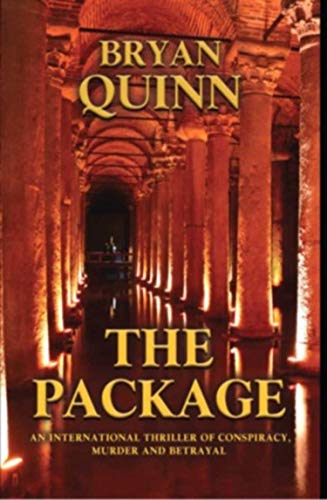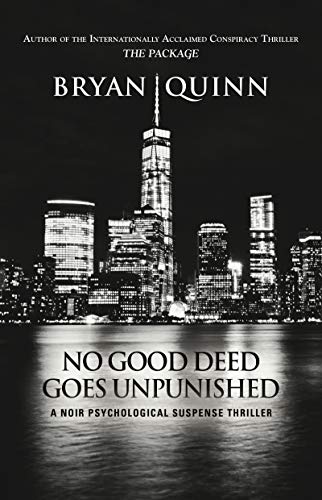Welcome back, my fellow creatives! I’m thrilled to continue sharing some lovely indie authors I’ve met in our community. This month, please welcome the mysterious Bryan R. Quinn!
You have a unique history in the publishing industry as well as in technical writing. From your experience, what do you consider to be the most unethical practice in the publishing industry, and what can be done about it?
Vanity publishing scams that milk naïve and, perhaps, desperate writers dry who haven’t done their due diligence are concerning. I hate to see writers, or anyone for that matter, get swindled. Writers need to investigate online publishers before trusting them with their hard-earned money.
Do you see your work as a technical writer influence your prose style as a fiction writer? Technical writing must be precise and concise, so I apply this precision and concision to my prose. At least I believe I do. I try to make my sentences lean as possible, even when they are long.
What other authors are you friends with, and how do they help you become a better writer? Sandra Johnson and Wendy Waters, who I met on Twitter, reviewed NO GOOD DEED GOES UNPUNISHED before I published it. They gave me valuable advice about some of the characters and their motivations.
What is your writing Kryptonite? (Mine is a call from my sons’ school principal.) When my wife tells me to find a real job. I’ve been out of the workforce for eight years now, so it’s real tough getting back in.
Have you ever gotten reader’s block? Original question. There are times, and they are rare, when I don’t feel like reading a book, whether fiction or non-fiction. In those moments I’ll watch a DVD or surf the Web.
I think it’s safe to say we all have those moments when we need that visual stimulation over the written word! Still, that doesn’t mean language has no hold on us. What was an early experience where you learned that language had power? Way back when I wrote a young woman a farewell letter that had sprung from my heart. We lived far apart at the time. Through a mutual friend I learned she felt my letter read like poetry. That was a real surprise to me. I wish I had a copy of that letter.

What’s your favorite under-appreciated novel? Fields of Grace by Wendy Waters. Sublime writing and original storytelling.
How about your favorite childhood book? I know I always loved to adventure the fantastical lands in The Voyage of the Dawn Treader time and time again. The Adventures of Huckleberry Finn. I received a copy of it from my parents on my 8th birthday. Many years later, I studied the hidden themes in this novel in an American literature course at university. It was a fascinating intellectual journey.
You have written both short fiction as well as novels. What process do you undertake to see how many words a story truly requires in order to be told? I look for gaps in the story much as one would look for missing pieces in a puzzle. Conversely, just like a puzzle, every piece in a story must belong there. To that end, I look for fat, that is, if I remove a chapter, would the story improve or worsen? I like to keep my stories as lean as my prose.
What is the most difficult part of your artistic process? I always know how my stories begin and end. How the story moves from beginning to end without seeming contrived is the difficult part.
Oh yes, that’s a familiar trouble. Goodness knows I’ve had my share of mishaps in plotting my way from first scene to last. Still, you’ve successfully conquered this journey recently for your new noir thriller. Congratulations! Please tell us all about it and what inspired it. The germ of NO GOOD DEED GOES UNPUNISHED, a tale set in New York City, was planted by a sister. I polled my sisters for story ideas. My youngest sister suggested a story about the Mob’s treatment of its foot soldiers. The Mob is always good fodder for a story, so I combined that premise with the premise of a Manhattan billionaire falling into the clutches of the Mafia. But more than that, this is a cautionary tale about wealth and its seeming guarantee of protection from the vicissitudes of life; it is this false sense of security, this chink in the armor of the wealthy, that evil, in the guise of a Mafia don, exploits in this story.
Sounds like a delightfully dangerous read, Bryan! Thank you so much for stopping by for this chat. May your future storytelling take down other alleys unknown of mystery, murder, and mayhem.
~STAY TUNED!~
I’m still waiting on that frickin’ copy of the new Death on the Nile, but that’s okay. I’ve been finishing a trilogy a friend recommended, and it’s got me wondering about yet another problem many writers face: worldbuilding vs. character-building. Let’s discuss, shall we?
Read on, share on, and write on, my friends!



